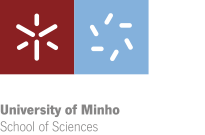The Degree in Computer Science is a partnership between the Department of Mathematics and Applications, of the School of Sciences, and the Department of Informatics, of the School of Engineering, and is characterized by a rigorous vision of computing, with a solid mathematical foundation. Graduates acquire skills that are indispensable for analyzing and solving problems in the area of ??information technologies and for the development of robust computer applications. The training given aims to provide students with the ability to build their own models for new problems and to develop methods, techniques and computational tools for their solution.
The teaching methodologies include theoretical classes, exposition of the syllabus, theoretical-practical classes, problem solving, and practical sessions in computer labs, available both in the Department of Informatics and in the Department of Mathematics and Applications. In many of the curricular units, students carry out, individually or in groups, outside classes, which may include the presentation of written reports and oral presentations.


